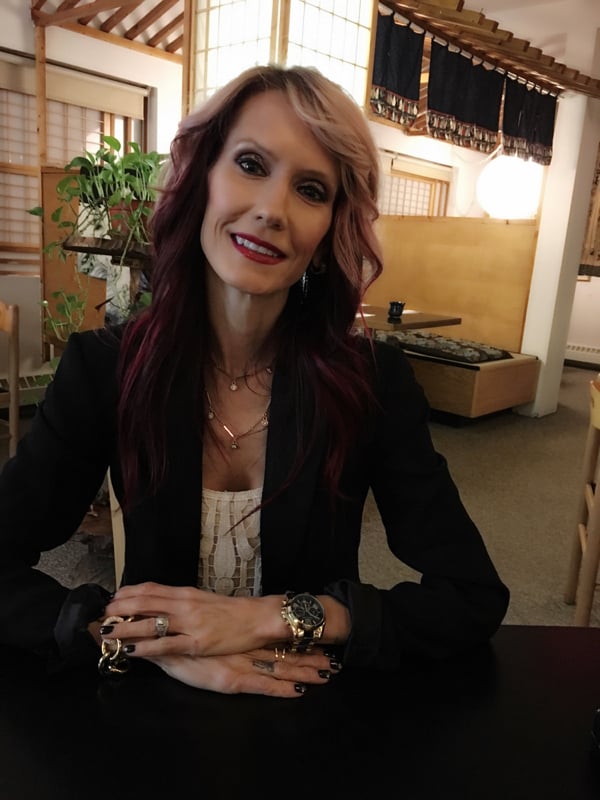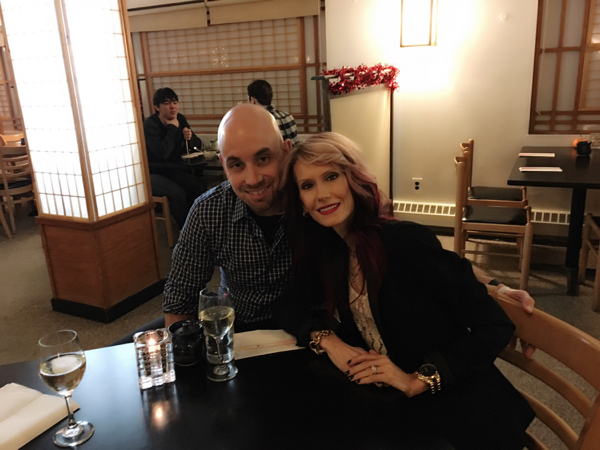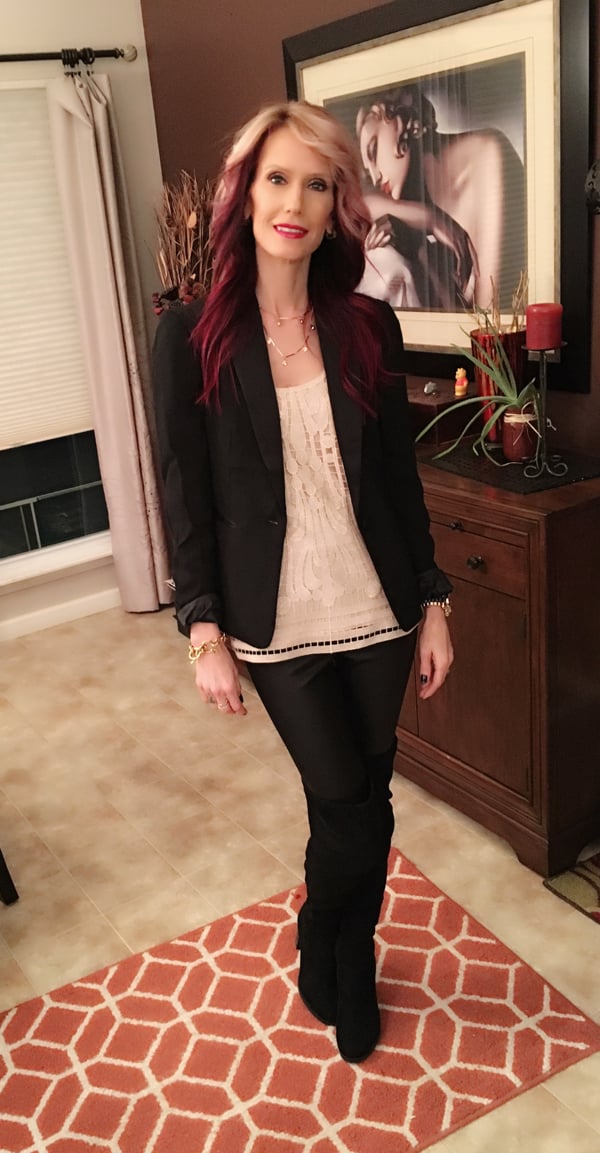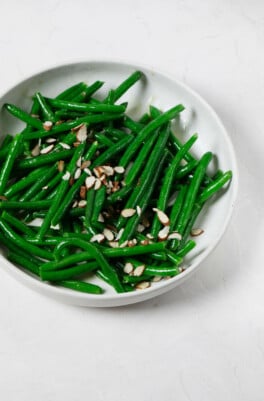
Happy Friday, everyone. I hope you’ve all had a great week.
National Eating Disorder Awareness Week (NEDA week) begins on Sunday. Each year, I like to treat this week as an opportunity to reflect on eating disorders and the impact they exert on our lives and the lives of our loved ones. To commemorate NEDA week, I’ll be sharing an eating disorder themed post on Monday, and Sunday’s weekend reading will feature articles and essays that shed more light on ED experiences.
Today, as a way of kicking off NEDA week, I’m sharing a new green recovery story, from longtime Full Helping reader (and client) Jen. As you’ll see, Jen has made remarkable strides into recovery this year, moving away from a very longterm, on-and-off-again ED. She has approached the recovery process with a proactive attitude, asking for support and accountability, learning more about eating patterns and foods that can nourish and sustain her health, and facing what may be the most difficult challenge of recovery, which is figuring out who you are without the disease.
As Jen says in her story “to me, I was my ED.” Eating disorders often provide us with an illusory sense of being special and distinctive; they swoop into our lives and persuade us that we can stand out. Of course, it’s a terrible falsehood, because eating disorders serve only to erode our passion, focus, and energy–as well as our relationships and engagement with the world. These are the things that actually make us special, but it’s hard to see them under the all-consuming shadow of an ED.
For me, one of the hardest parts of recovery was facing a life in which I couldn’t hide underneath my disorder. What if I gave up anorexia and suddenly found that I was no good at anything? No matter how much I’d always doubted myself and my talents in every other arena, I’d been sure that I was “good” at my disorder. I knew that a richer, fuller, and more rewarding life waited for me on the other side of recovery, but I couldn’t imagine who I’d be without the obsessions, the habits, the “control.”
Through the recovery process, I uncovered my true, authentic identity. I came to terms with who I really am and what I really want, which was frightening indeed, and often a tremendous challenge. To this day, the moments when I feel whispers of the old struggle are always those in which I’m feeling self-doubt or insecurity; I know very well that food obsession would be a convenient place to hide from those unnerving emotions. But facing our vulnerability and self-doubt is a part of life, part of growth, and turning to food as a means of escape is not the answer. (For more on this theme, check out this post.)
I am deeply proud of Jen for having embarked on a quest to find out who she really is through recovery, and I admire the effort she’s poured into nourishing and taking care of herself through food. Here is her story.
When I sat down to write my ED story, I thought: Where do I begin? How do I tell my story? What is my story?
Growing up I had everything I could have ever wanted, an amazing family, love, support, etc. We had our family vacations every summer, I played sports, and I was never really concerned about my weight. I was always on the bigger side, but athletic. However, even at a very young age I always wanted to be perfect. I needed to have the perfect hair, the perfect make-up, the perfect everything. I always wanted to be in control of something. My appearance, not so much my weight, was that outlet. I see now that control is what my ED is all about.
It wasn’t until I went to college that things began to change. I started to pay attention to my weight, especially after my first semester. I had gained more than the freshman 15 and was miserable. After Christmas break, I developed a nasty case of strep throat and couldn’t eat for a week. I lost a few pounds and people noticed. I noticed. I thought, if I limit what I eat I can lose more. Well, this became an obsession from then on. The more I would get stressed or the more things got out of control at school, the more I restricted. I loved that I finally had control of something. In high school I was always referred to as the “bigger one” of the group, and I often went unnoticed. So, when I started to drop weight and get attention, it gave me a whole new sense of confidence.
I began to slowly cut out certain foods, like bread and sweets, then almost all fats. As the weight dropped off, my perfection and control obsessions began to steadily increase. I thrived on the knowledge that I could do something that not many others could do. I loved that people commented on my weight loss and how beautiful I was. By the time freshman year was over I had lost about 15 to 20 pounds. Over the summer I continued on my path, much to my family’s dismay, and lost another 20 pounds. My parents were beside themselves and were very concerned. They couldn’t understand what I was doing and I just kept reassuring them that I was fine. They had nothing to worry about. I was just losing a little and then I would stop. Everyone just kept telling me to eat.
The more they said those words, the more I did the opposite. I was in control. I knew what I was doing. If only I could go back to that me and tell myself to get back to reality. The obsession didn’t stop. Throughout the next year, I continued to restrict and was critically low in weight. My parents forced me into treatment, which I reluctantly went to, but never committed internally. I did what they said, but as soon as it was over, went back to my normal ways—restricting and exercising to extremes. Unless I did this, I did not feel perfect anymore.
Perfection, to me, equaled being the kind of thin and beautiful you see in the magazines. I wanted that perfect body, perfect hair, perfect makeup…what I couldn’t see was that all of the beauty I had was diminished by my ED. Looking emaciated wasn’t beautiful to anyone but me. All it did was make my family hurt and my friends turn away. However, I could not see any of this. When I would go out, I wouldn’t eat, making up some excuse as to why. I gave up enjoying life and was all consumed by my ED. Soon I just stopped going out altogether. I put my family and friends through so much over the years and I have a hard time coming to terms with that guilt.
I cycled in and out of treatments over the next few years – inpatient, outpatient, therapy, etc. Nothing ever worked. I never felt good about me. I was always put into a category…”you must of experienced some trauma to make you be like this” or “you must not be telling us the whole truth.” No, I did not have trauma as a child, I just wanted to be perfect. I was forced to eat disgusting food that did nothing for me nutritionally and made me feel worse. How was this supposed to help me, and how was I supposed to live in the real world? I didn’t know how. After all of my treatments, I would become obsessed with restricting and would work out for hours a day. Anything to get the weight off quickly. Yes, it worked, but I was miserable, tired and in pain. I put on a happy face and tried to live life how I thought it should be. Always covering up what I was really feeling.
Through all of this I met the most wonderful man, who is now my husband. I still have no idea how he could ever love me after all I have put him through. I was on a good path after I met him and when we got engaged, I couldn’t have been happier. However, this is where my control kicked in yet again. Wedding=On Display=Thin=Beauty. Was I thin enough? Was I pretty enough? I never developed any ways to cope with these thoughts so, once I again I stepped off the cliff and into a world of ED.
That is the thing, with all of the treatments and therapy, I never learned how to say no to those distorted thoughts. To me, I was my ED. I was that person who was in control, perfect and thin. I never learned who the real me was. I only knew me through my ED. It was in control of me and not the way I perceived it to be. After the wedding, I continued to spiral downward.
Fast forward a few more years and I finally hit rock bottom. I was sick, tired, malnourished and miserable. I was living on protein shakes and ginger candy. My stomach issues (IBS) were at an all-time high and I just couldn’t take the pain anymore. I was obsessed with exercise and I wasn’t enjoying life. I was alienating my family and my husband–my biggest supporters. I finally had enough. I was done.
I had been an avid reader of Gena’s blog, but never really thought about how it could help me. One night, after feeling overwhelmed and out of control, I sent her a message and asked to meet. I was so afraid to tell her what I had been eating, or lack thereof, for fear that she wouldn’t want to work with me and tell me I needed some other form of help. However, after talking, I felt like she was perfect for me! She knew my exact feelings and was so willing to help. She could hear in my voice that I was finally ready, and she accepted me for me.
I was a nervous wreck when I received the first plan, how could I do this? I haven’t eaten in years. Can I do it? Will I fail? That first day of eating was the hardest day of my life. I thought to myself, I am going to gain too much weight, I am going to be out of control and not stop…However, that was so far from the truth. I couldn’t believe how good real food tasted and that I was being healthy! I was eating fats and loved them. I wasn’t scared. My stomach issues have decreased and for the first time in years I am hungry for food. I have learned to eat nutritious food that is good for my body and my soul.
December was a hard month for me, as the holidays meant being out of my routine and eating differently–parties, family gatherings, etc. In the past I had always only allowed myself to eat the “bad” food on Christmas day. It was my way of controlling my eating disorder. I could eat anything I wanted for one day only and then it was back to “normal.” This year I found that I was much more relaxed about how much and when I ate different foods. I ate more than my fair share of cookies. I have to admit it did stress me out as I felt a little bit out of control, but I had to take a step back and ask myself if I was happy. Did I enjoy my time with my family? Did I enjoy being less restrictive? The answer is yes. I think the holidays are hard for many people. Yes, I ate more than normal. Yes, I may have gained a few pounds. However, this year I had a new support and structure. After the holidays, I went back to my nutritious meal plans and I feel great.
Now, I am working towards figuring out who I am without the ED. I am enjoying life again. It only took that one person to really listen to me and understand what I needed. I am so thankful to Gena for her help on this journey. I call it a journey because I am not sure if you are ever really fully “cured” from your ED, you just keep pushing it further and further away from you. I think that it will always be a work in progress for me, but a good one! I am finally learning who I am!
As usual, I can see themes running through Jen’s story that have characterized other stories in this series, too: the quest for control and its many false promises, the loneliness of the struggle, the vital importance of support during recovery. I also noticed that Jen’s ED began with illness, weight loss, and subsequent positive reinforcement from the outside world–a series of events that seems to set so many EDs in motion.
I would love to hear your thoughts on Jen’s journey so far, her ongoing commitment to recovery, selfhood, and growth, and any thoughts you might have as we jump into NEDA week. I can’t wait to create some energy and focus here on the blog this week in service of the many men and women who struggle with EDs each and every day.
Happy Friday, and see you for weekend reading.
xo
This post may contain affiliate links. If you use these links to buy something I may earn a commission. Visit my privacy policy to learn more.





Leave a Comment
I can see so many similarities between your journey, Jen, and my own. The thing that stands out the most, and has been really on my mind these last few months, is that reatment so often does not address the issue, and does not providing the support to live on recovered afterwards. Thank you for sharing Jen. I’m glad you are finally discovering you.
I am so happy for you.
This is such a beautiful story. Very inspiring I can relate to so many of the things Jen writes. Like the fact that your eating disorder becomes your entire identity. I remember scare i was when I fist started recovery because I had no idea who I was without my eating disorder.
Thanks for sharing your story, Jen!
This is a beautiful story. Jen, you are a wonderful woman and fully supported! Your bravery for sharing your story is one that is rare. Treasure it and hold it tight because that bravery will see you through the hardest of times. Temptations will occur, but when you have strength and bravery under your belt, you can truly overcome anything— even ED. I also understand so much of what you said through this post, such as how you found identity in ED. I think many of us understand this all too well. It’s almost like you feel you always had an ED and don’t know how to be different without one. But what I have learned is that when the soul beckons loudly enough, the body will soon follow. All it takes is one small will to try. I’m so glad you were able to work with Gena as well. She’s a true spirit we all love and are grateful for. Thank you for sharing your story, Jen. I will be praying for you. Enjoy your recovery journey!:)
Congrats Jen on your recovery journey so far. The early part of your story parallels mine very closely, weight gain over first semester in college followed by precipitous weight loss (not just what I’d gained during those four months, but pretty much what I’d gained over the previous 8 years, as I returned to my fifth or sixth grade weight, and clothing size! I can relate to the struggle to give up an eating disorder which had become constitutive of my identity. It was especially hard in my case because it wasn’t just about being thin, and feeling special, etc. – I did actually reach a point of willingness to gain weight (at least a few pounds), and in the last few years, I was more likely to hide my thinness (at the gym, etc.) than to flaunt it. My eating disorder lingered, I think, because my “weirdness” with food was the way in which I managed severe anxiety. Which I went on to manage in less than healthy ways – even as I recovered! As for whether we’re ever cured, it’s hard to say. I *do* identify as a recovered person (I use the past tense, not the progressive) because I have been at a menstruating weight for many years now and I have what I’d consider to be a healthy relationship with food. But I do protect my recovery – if not as anxiously as I did in the early years – and so I’d encourage you to do that too. Because we can have set backs in life that make us feel diminished and yes, those experiences trigger ed thoughts. But if you have self-care routines in place, if you’ve established healthy eating habits, if you’ve found foods you love, it’s easier to quiet the impulse to starve and berate ourselves and instead, to use those times when we’re feeling sad, disappointed, etc., to intentionally nourish ourselves (almost against our will, but in our highest interest). At least that’s been my experience. Going on 20 years.
I’m so glad to here you are finding peace <3
Thank you for sharing your story, very inspiring and honest. I can relate to the desire for control, that’s what started my journey too. So glad you’re recovering.
Your story will inspire so many others. I’m in awe of your strength of character and overjoyed to be allowed to be let in to your struggle and road to triumph. Much love from a very old friend!
I am so very proud of you, Jenny (what I called you when you were little)! I am here for you always, and am so very happy you are on your road to recovery! XOXOXO
Really glad for you! As a person who had an “ED” for years, this inspires to continue on my course. It truly is one of the worst battles anyone can have.
Thank you. Having my story out there makes it more real. No more hiding.